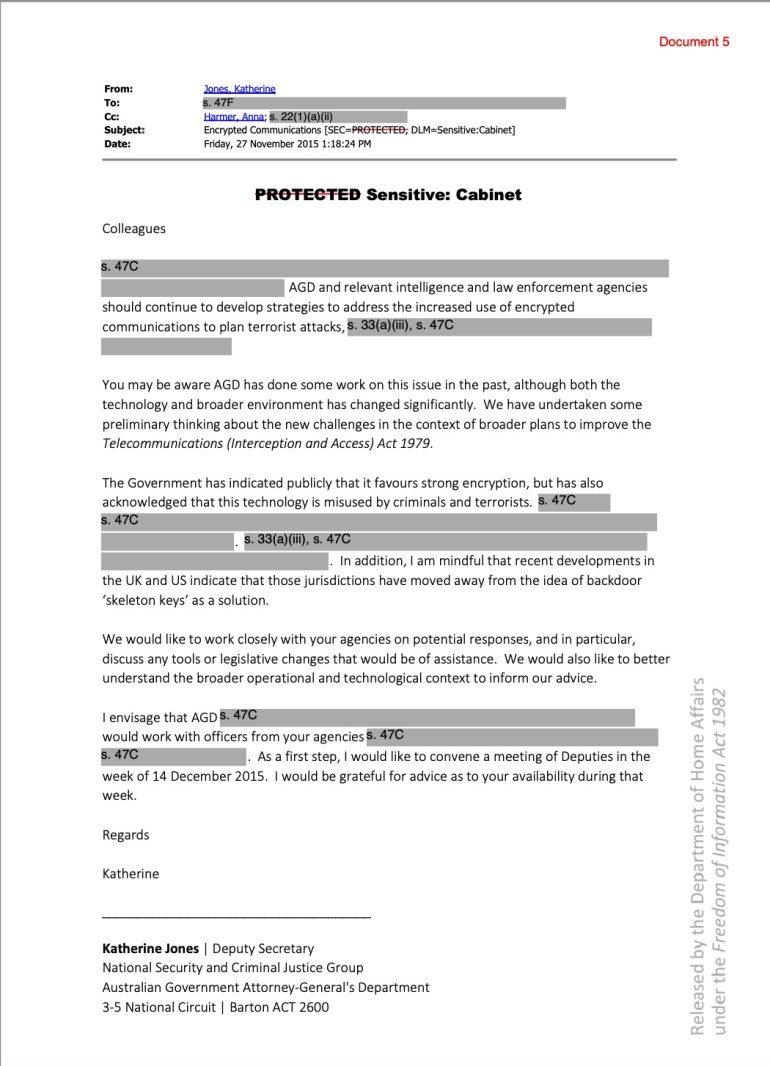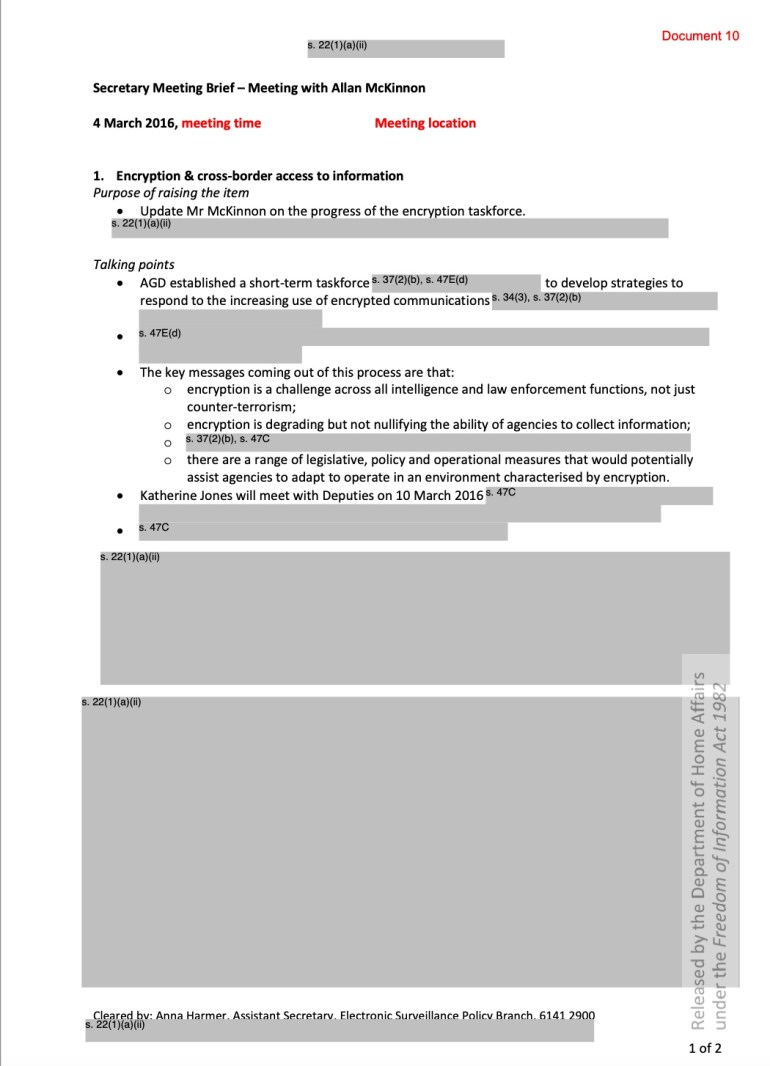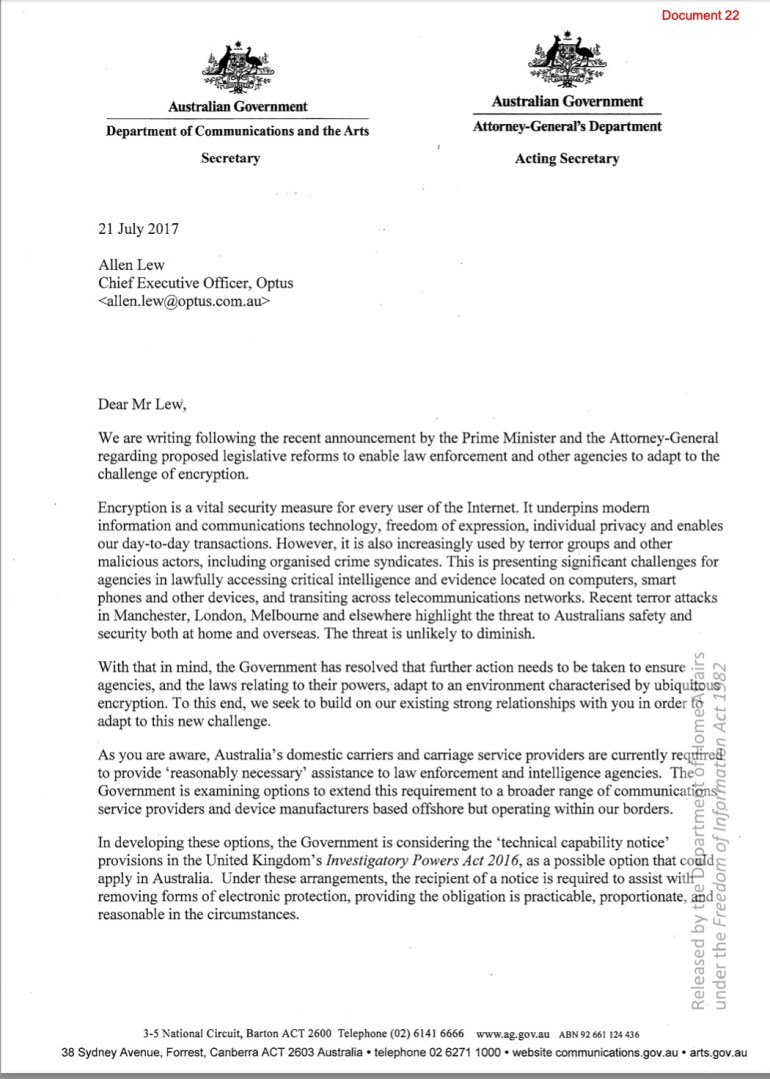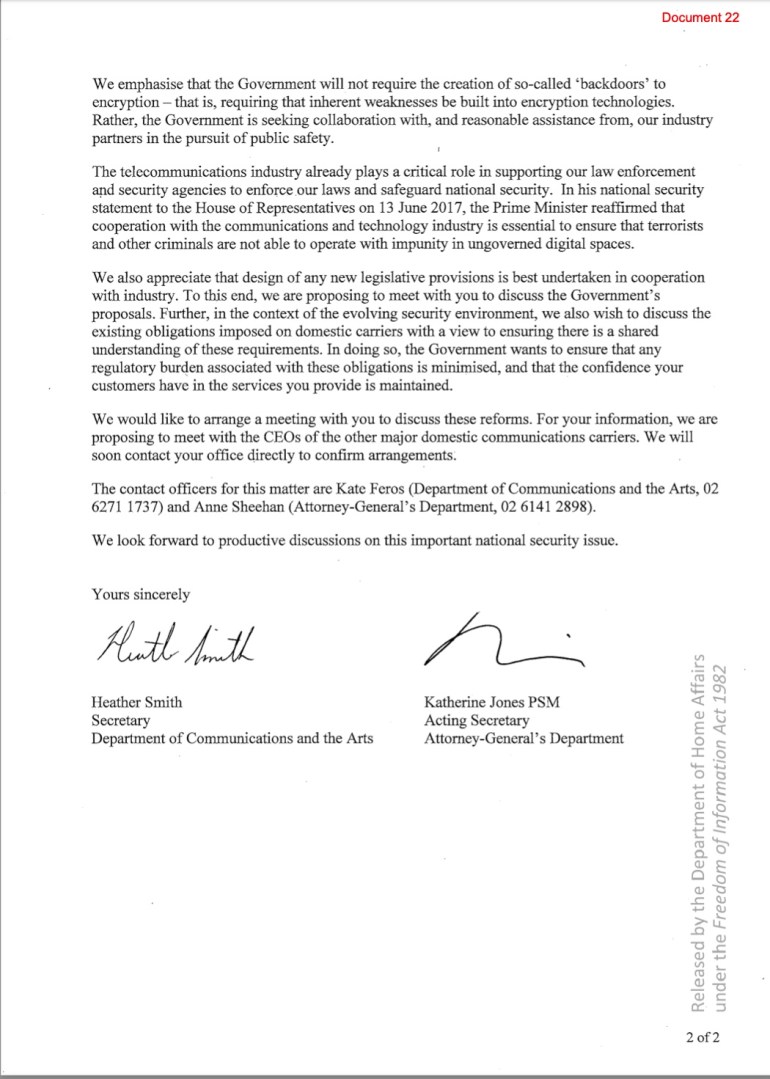Australia’s early designs for ‘dangerous’ encryption legislation exposed | Technology News

The Australian authorities began in search of controversial powers to crack encrypted communications pretty much two yrs right before unveiling landmark anti-encryption laws branded “dangerous” by tech marketplace leaders, recently acquired documents expose.
Australia in 2018 passed entire world-initial legal guidelines to power tech corporations and services companies to make capabilities permitting legislation enforcement secret accessibility to messages on platforms like WhatsApp and Facebook – this sort of as press notifications that download malware to a target’s computer system or telephone.
The legislation, which Canberra stated was necessary to stop “terrorists” and other critical criminals from hiding from the regulation, drew intense opposition from privacy authorities and tech market gamers, who warned that undermining encryption could compromise the privacy and security of millions of individuals all over the world.
Beforehand unseen files acquired by Al Jazeera below flexibility of info legal guidelines show that Canberra’s thrust to get about encrypted communications, which are invisible to 3rd events, was in the functions at minimum as significantly back as 2015.
Former Prime Minister Malcolm Turnbull unveiled legislation to tackle encrypted communications in July 2017, declaring the online ought to not be made use of as “a darkish area for undesirable folks to disguise their legal activities from the law”.

In a letter to govt company heads on November 27, 2015, Katherine Jones, a leading nationwide stability official within the Attorney-General’s Office (AGD), outlined the want for her section and “relevant intelligence and law enforcement agencies” to “continue to create strategies to tackle the greater use of encrypted communications to program terrorist assaults …”.
“You may well be informed AGD has performed some perform on this problem in the past, while the two the engineering and broader environment has transformed substantially,” stated Jones, the then-deputy secretary of the Nationwide Protection and Legal Justice Team inside of the AGD.
“We have carried out some preliminary contemplating about the new difficulties in the context of broader designs to make improvements to the Telecommunications (Interception and Entry) Act 1979. The Authorities has indicated publicly that it favours solid encryption, but has also acknowledged that this technological innovation is misused by criminals and terrorists.”
The letter, which is partly redacted, also refers to the contentious situation of so-termed “back doors,” which would turn out to be important in the government’s afterwards messaging insisting the legislation would not threaten the standard public’s privateness.
While the Turnbull governing administration insisted the Guidance and Entry Act would not build systemic vulnerabilities that could undermine encryption in general, tech giants Google, Fb, Twitter and Apple lobbied versus the legislation, with the latter at the time describing it as “extraordinarily broad” and “dangerously ambitious”.
“In addition, I am conscious that latest developments in the Uk and US point out that these jurisdictions have moved away from the idea of backdoor ‘skeleton keys’ as a solution,” Jones wrote in the letter.
“We would like to function intently with your agencies on prospective responses, and in particular, discuss any applications or legislative changes that would be of guidance. We would also like to improved realize the broader operational and technological context to notify our assistance.”
In March 2016, encryption and “cross-border accessibility to information” had been included on the agenda of a conference concerning Allan McKinnon, the then deputy secretary of the Department of the Key Minister and Cupboard, and unnamed officers, in accordance to a heavily redacted briefing doc.
The briefing describes encryption as “degrading but not nullifying” regulation enforcement’s intelligence-gathering talents and refers to a “range of legislative, policy and operational steps that would probably assist companies to adapt to operate in an setting characterised by encryption”.

Justin Warren, chair of Electronic Frontiers Australia (EFA), instructed Al Jazeera the language of the briefing did not match governments’ general public rhetoric about the danger posed by encryption.
“The public rhetoric implies that encryption is somehow fundamentally harmful, as if authorities had no other powers or skills, which is not remotely legitimate,” Warren said.
The paperwork obtained by Al Jazeera also glow a mild on the government’s consultations with telecommunications firms next Turnbull’s announcement of the legislation in 2017.
In letters sent that July, Jones and Heather Smith, the then-secretary of the Division of Communications and the Arts, invited the CEOs of nearby players Optus, Vodafone Australia, TPG and Telstra to a conference to go over the proposals.
“We emphasise that the governing administration will not demand the development of so-named ‘back doors’ to encryption – this is, necessitating that inherent weak spot by designed into encryption technological know-how,” the letter stated. “Rather, the government is in search of collaboration with, and acceptable assistance from, our marketplace associates in the pursuit of public basic safety.”


Al Jazeera obtained the documents, which also contain a comparison of authorized frameworks around encryption in various Western countries, nearly five a long time following submitting a independence of information request for info about Australia’s planned anti-encryption routine.
After various denials to the requested facts by the AGD, the Business of the Australian Details Commissioner in February ruled the federal government really should launch some, but not all, of the supplies recognized in the ask for.
EFA’s Warren claimed it was concerning that simple details about the government’s strategies took so long to be released to the community.
“It would have been practical to have this details though the debate into the Support and Access Act was going on, a vital goal of the FOI Act,” he said.
“The prolonged hold off has broken Australia’s means to have a properly-educated debate in a timely vogue. This is an concern throughout the board: the Australian authorities is performing difficult to hold its own things to do key whilst it simultaneously damages our privateness.”
The AGD referred a ask for for remark to the Section of Dwelling Affairs, which took over some of the AGD’s duties subsequent the passage of the regulation. The Department of Residence Affairs has been contacted for comment.





